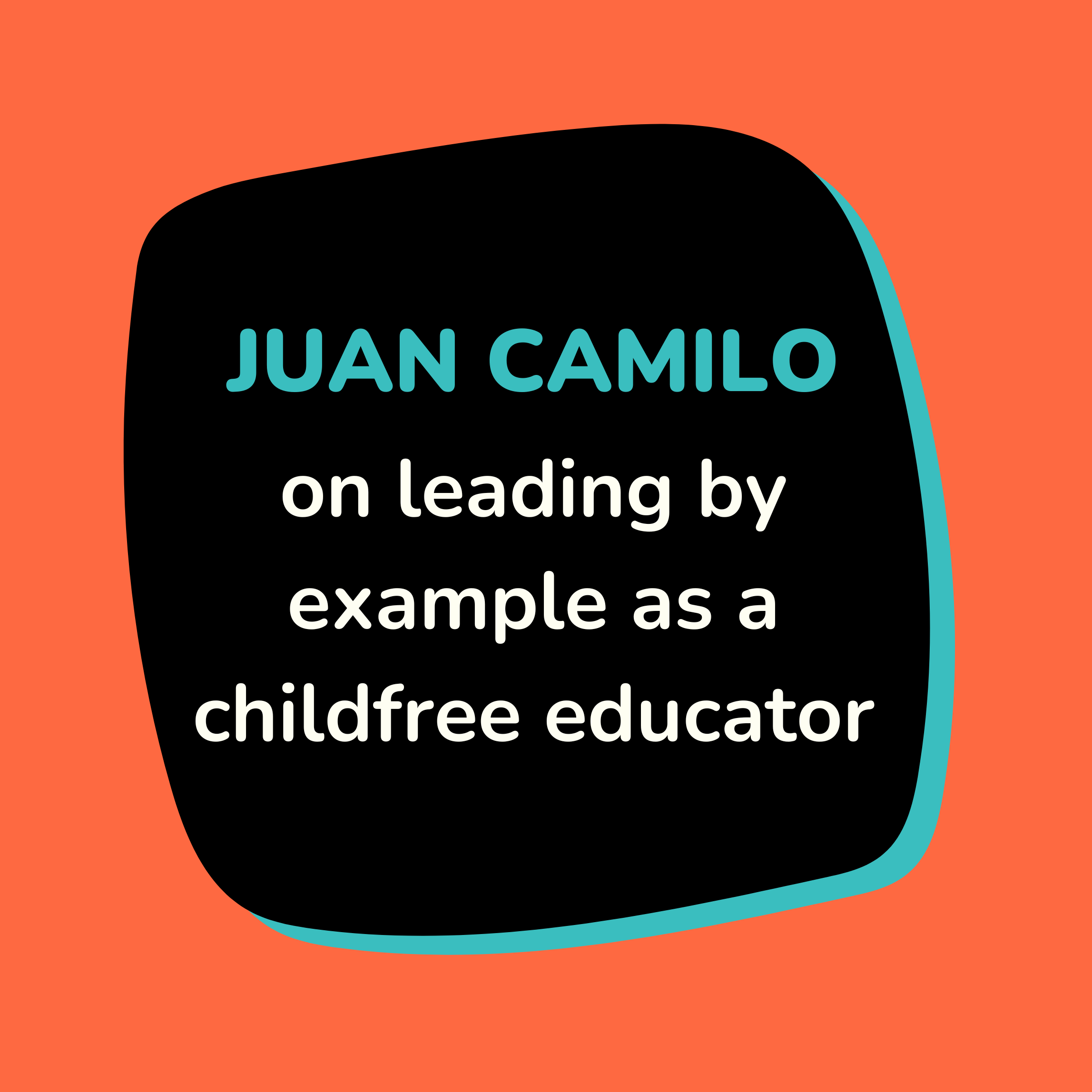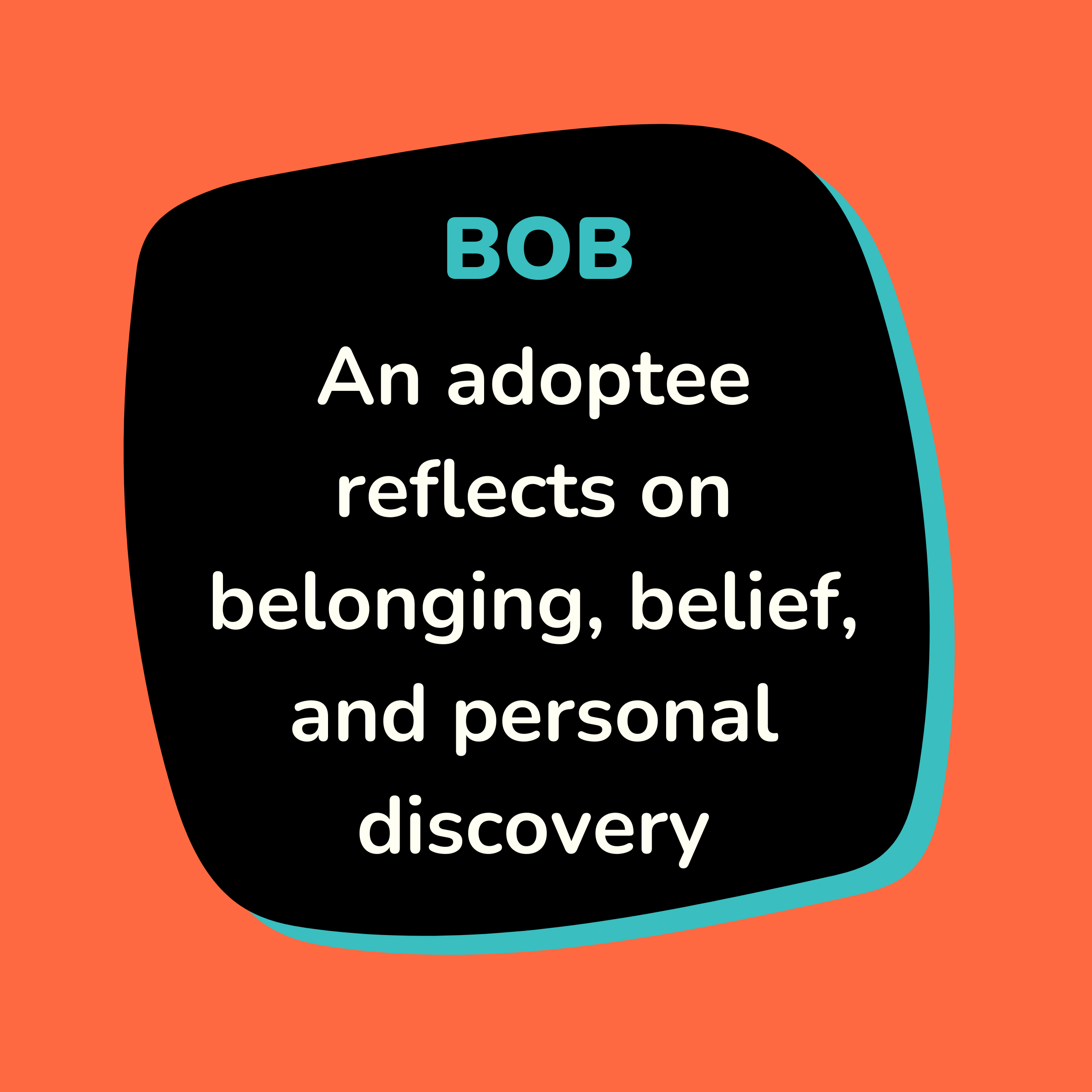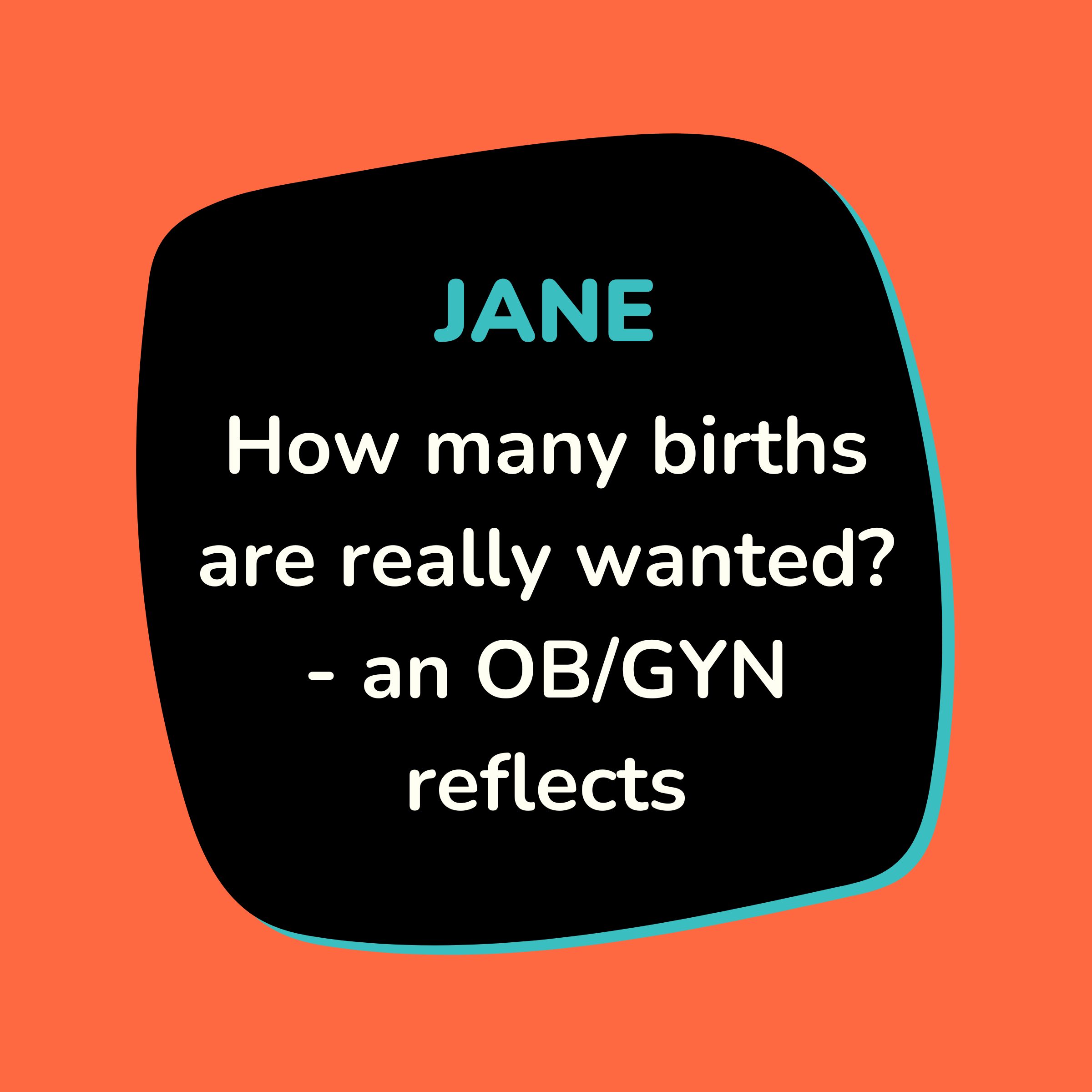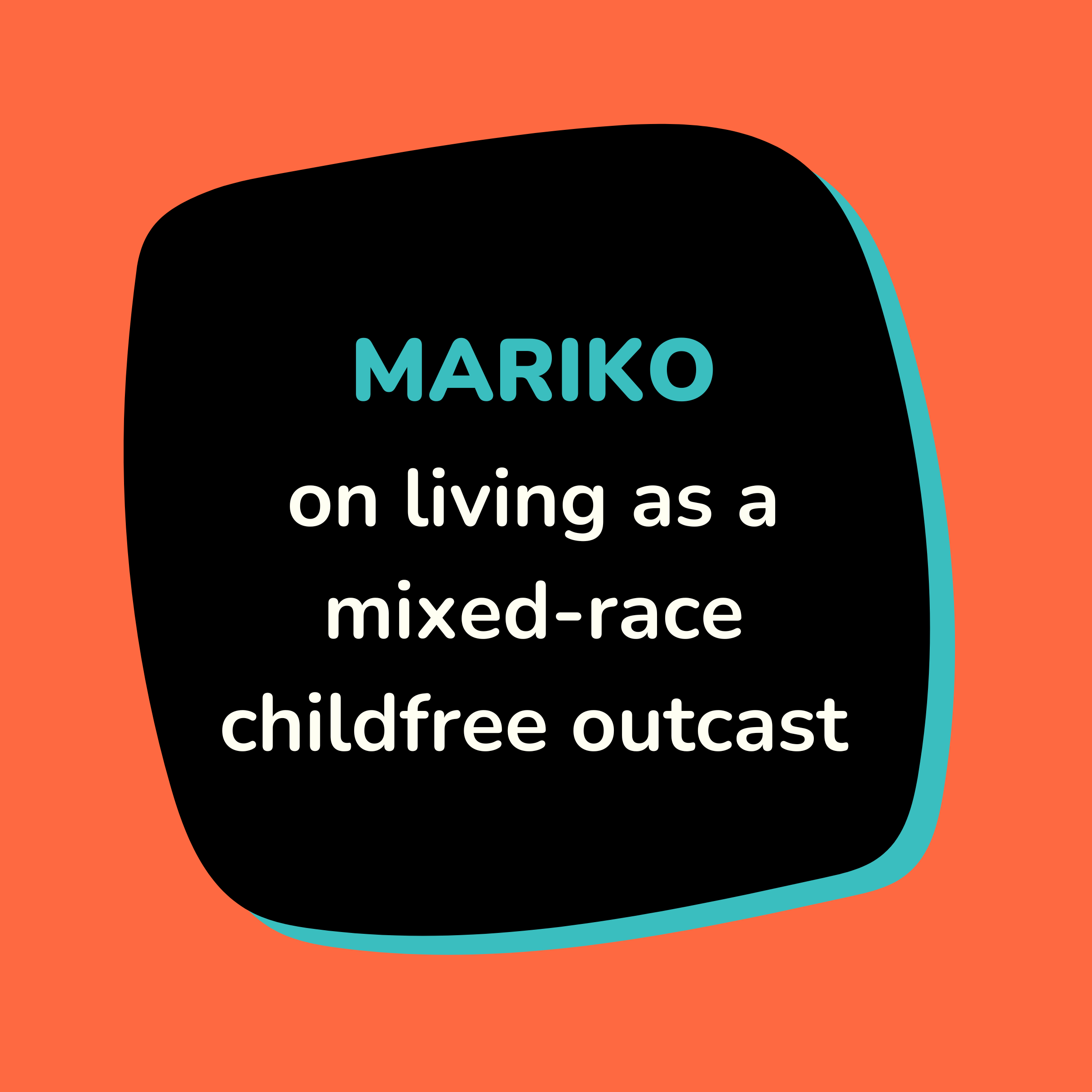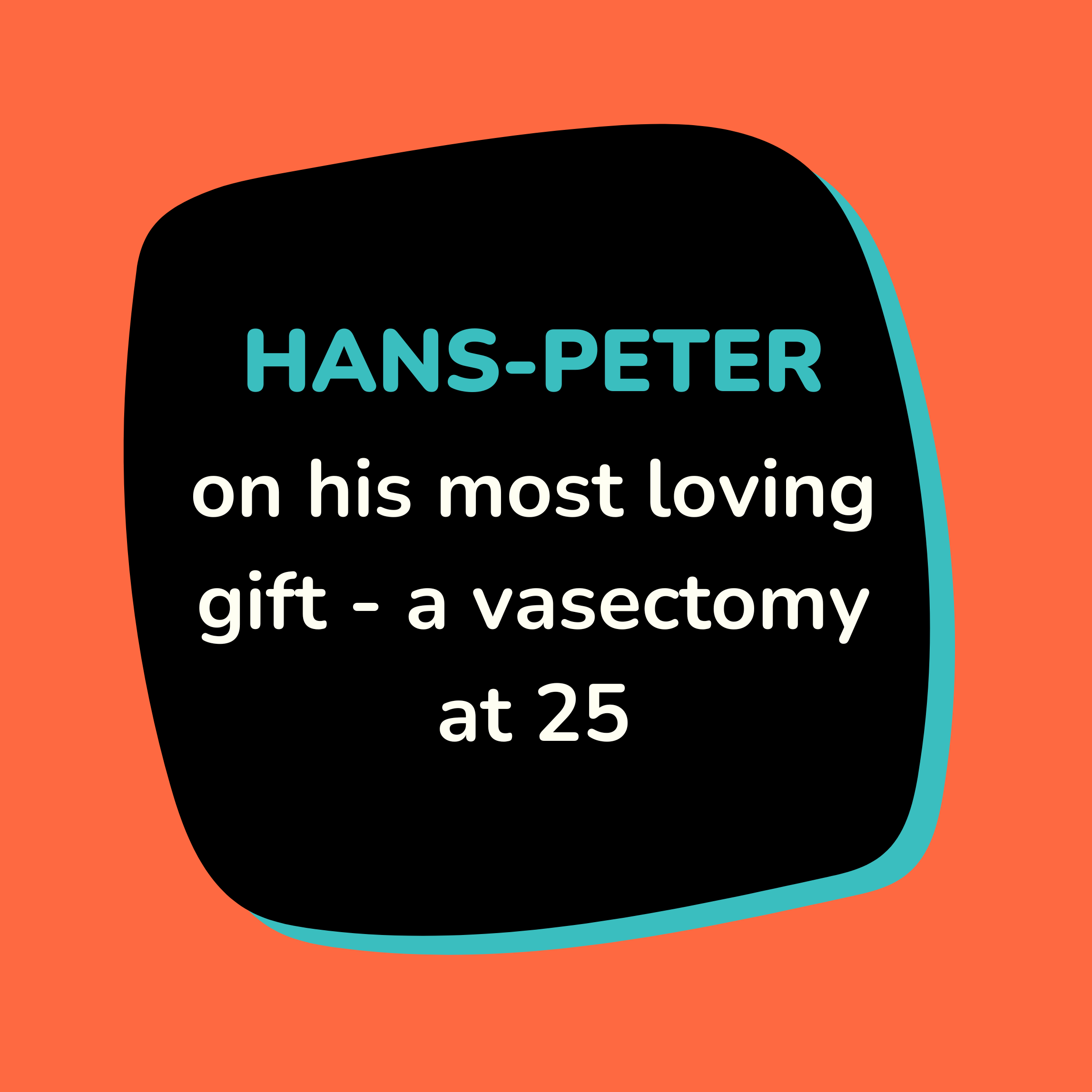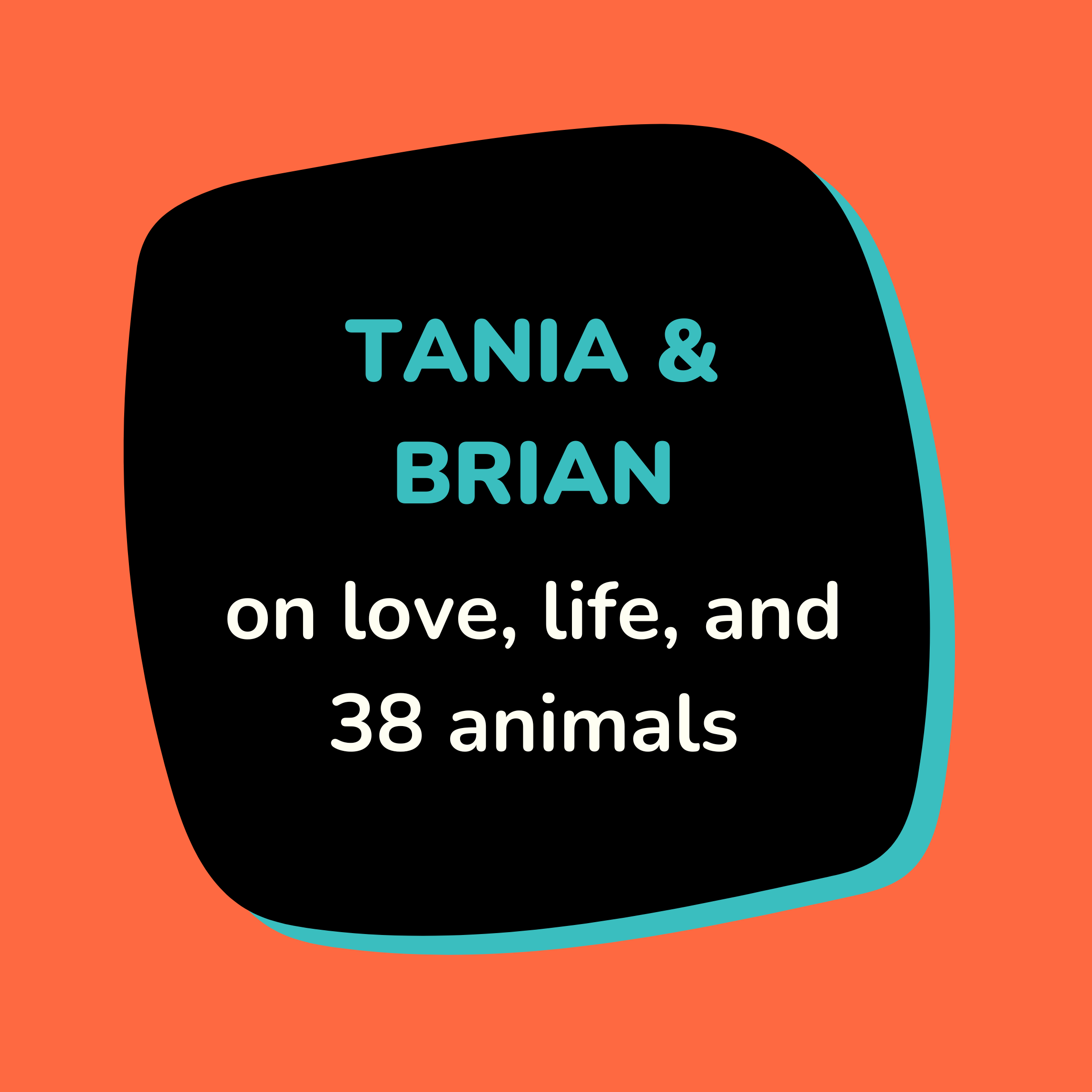Juan Camilo - on leading by example as a childfree educator
Juan Camilo made a decision when he was just a teenager: that he would not bring children into a world where they would suffer. Despite the pressures of living in conservative Colombia, he has managed to stick to his convictions and now teaches graduate students about how they can reduce their environmental impact by having fewer kids.
-
[00:00:00] Juan Camilo: I made up my mind very young that I did not want kids. So I remember in my school bus, I was thinking that day that probably the world was not going to be that great of a place to be living in, in 2050. And so I made calculations if I had kids and what's going to happen to them. And I said, Oh no, no, no, no, no, no.
[00:00:22] I don't want kids. Probably now in retrospect, I think that I was looking at something out the window - poverty, street kids, suffering probably. And I decided I didn't want suffering, especially my children suffering in this world. And so it became part of who I was then and who I am now.
[00:00:54] Nandita Bajaj: That was today's guest, Juan Camilo. Hello everyone. And thank you for joining me on this journey. My name is Nandita Bajaj, and I'm the host of Beyond Pronatalism, Finding Fulfillment With or Without Kids, an interview series in which through intimate conversations with women and men from diverse backgrounds, I explore how they are courageously and creatively navigating pronatalism - the often unspoken pressures to have children, whether from family, friends, or the culture at large. In each episode, I dive into personal stories with people who are forging unconventional pathways to fulfillment, including redefining what family means to them, whether that means being childfree or childless, having biological kids, adopting or fostering children or animals. or creating close-knit communities of friends and loved ones. Hello Juan Camilo and welcome to Beyond Pronatalism podcast.
[00:01:54] Juan Camilo: Hi Nandita, thank you very much for inviting me and hello to everybody.
[00:01:58] Nandita Bajaj: And I'm really thrilled to have you here and I'm excited to hear about your very unique story. So Juan Camilo we'll begin your story really by getting to know a little bit about yourself. So if you can introduce yourself, tell me a little bit about where in Columbia you live, what you do.
[00:02:21] Juan Camilo: So my name is Juan Camilo Jaramillo. I am 61 years old and I am a marine scientist, but now what I do is I teach several different universities. I teach about the environmental crisis, climate change, basically. And I live in Columbia, South America. I live outside of the city of Medellin, which is the second largest city in Columbia. I do not live in the city itself, but outside of the city, like about an hour away up in the mountains, very green lush rainforest, here in Columbia.
[00:02:58] Nandita Bajaj: And I'd love to hear generally what the culture was like when you were growing up around this notion that we all have to create family in a certain way and have biological children. What were the cultural views for you? Within Columbia, within your specific area where you were growing up.
[00:03:19] Juan Camilo: Okay. So, yeah, I live in a very conservative part of our country, probably the most conservative part, which is the state of Antioquia where Medellin is capital. And I was born in a very Catholic country. I think more than 95 percent of Colombians are Catholic. So I was born Catholic and I was baptized. But fortunately my parents were quite liberal, both of them, both professional. My father was an electrical engineer and my mother was an architectural drawing specialist.
[00:03:54] So they were educated and I was born into a very conservative society, but with very liberal parents. Okay, so they actually were very understanding of whatever we needed. And I say we, because we're three children, okay. So I have two sisters. I am the eldest, but nevertheless, the society itself was expecting, is still expecting, everybody to have children.
[00:04:23] When I was growing up, all everybody talked about was having a family, eventually marrying and having children, but I did not have too much pressure about that. So I made up my mind very young that I did not want kids. The reason I think I did that is because I am hypersensitive to the environmental crisis.
[00:04:45] And even then, back in the 1960s, I was born in '63. So by the time I was 10 years old in 1973, say, I already knew that something was not quite okay with population growth and with the environment, pollution, and many other things. So I made up my mind very young. I think before I was 15, I knew I did not want to have kids.
[00:05:11] And that kind of caused a lot of discussions within my extended family, not with my parents. They probably thought, he's going to grow up and then eventually he's going to want to have kids or whatever. And that was very logical for them to think. My dad had a company and he told me several times that I was going to take over his company and then my kids will actually do the same, but you know, I didn't want to go and get an engineer degree.
[00:05:41] And I became a marine biologist. So in a completely different path. So I think both my parents very soon understood that I was not going to have kids and they respected that. And that's why I guess they didn't do much pressuring, but my extended family did, my grandmother, my uncles and aunts. Oh my God, evil eye.
[00:06:05] When I said that I didn't want to have kids, mainly, and I still remember this particular uncle that told me that I was selfish because I didn't want to have kids. How, how come? I mean, what's going to happen with humanity? Are we going to go extinct if everybody thinks like you, et cetera, et cetera. And I couldn't understand. I was still very young, very rebellious. So I was basically talking back to the adults saying that I wasn't selfish.
[00:06:36] Nandita Bajaj: That's a really young age to have that kind of realization. And that's quite admirable that you were already thinking that. What were the things happening around you that made you question it?
[00:06:48] Juan Camilo: Yes. So I remember in my school bus and I was thinking about the year 2050. And I remember thinking that day that probably the world was not going to be that great of a place to be living in, in 2050. And so I made calculations. If I had kids, how old were they going to be and what's going to happen to them?
[00:07:13] And I said, Oh no, no, no, no, no, no. I don't want kids. Probably now in retrospect, I think that I was looking at something out the window - poverty, street kids, who knows, suffering probably. And I, decided I didn't want suffering, especially my children suffering in this world. And so it became part of who I was then and who I am now.
[00:07:37] Nandita Bajaj: That's quite incredible to have that kind of reflection at such a young age, because so many children really are still very much self-absorbed. Were there any other people around you who were modeling that or examples of people who didn't have children?
[00:07:53] Juan Camilo: I think now that you mention it, yeah, one particular uncle. My grandmother, my mother's mother, she had 11 kids. Okay. So it's, it was a big family. My mother's younger brother, Alvaro, he didn't have kids and he was maybe 10 years older than I was. And he was the only one that did not have kids from the whole big family. He was a puppeteer and he was a very rebellious, also 1970s young man. So I think maybe he was an influence for me now that I think about it.
[00:08:27] But there were others, of course. I have many, many cousins that just like me, they do not have any children. So I guess it was probably the beginning of a trend that it is now very, very evident here in Columbia. Just recently, there was this survey, kids from 18 to 25. They were asked one question. There were a hundred thousand data points. So it's a lot of kids, all school kids. And there was only one question asked, how many kids do you want? Zero, one, two, three or four. And the answer that won, if you will, was zero. I think maybe I was just a little bit ahead of that, but that's what kids are, at least here in Colombia, are thinking.
[00:09:10] Nandita Bajaj: That's an incredible stat in Colombia, especially given you say, you know, it is a relatively conservative country. So I'm very heartened that it's become normalized enough for younger people to be able to confidently own that choice.
[00:09:28] Juan Camilo: Yes, so as a teacher, because I teach at the university level, although my students are a little older than 20 or 25 because they're getting master's degrees, I do hold a lot of conversations with young university students. I use that in my classes to illustrate that they actually do have a choice, that they can actually choose not to have kids. But still, it's a Catholic country, and even though they can choose, the pressures from society are probably still there. Colombia is a relatively conservative country.
[00:10:06] But right now, for example, we are going through a political phase where for the first time in history, I think we have a progressive president. So of course we are polarized like every other country in the world, but besides from the religious pressures, we compare quite well with other countries around us, Venezuela, Ecuador, even Mexico, which is also a very Catholic country.
[00:10:34] And now, watching what's going on in the States, you know, some candidates are actually insulting people who do not have children. That's not happening here. Not that I am aware of. So if we wanted to compare Latin American country like Colombia with the U. S., for example, I think we're doing actually quite well.
[00:10:54] Nandita Bajaj: Sure. Let's fast forward a little bit to your life when it was time for you to figure out what was family going to look like for you. What happened? How did you stick with this decision?
[00:11:08] Juan Camilo: Well, so I have been married three times. So the first time I was married when I was very young, I was probably 22, 23. I was in the States. I married an American girl and we were married for about eight years, I think. And she also was of the opinion that we didn't really needed to have kids right away. Let's wait. So we did, fortunately, okay, because, otherwise I would be paying alimony right now. So we got divorced and I came back to live in Colombia and I remarried.
[00:11:50] And then that's when I found, well, my second wife. She wanted to have kids badly. But I told her I don't want to have kids. And she said, oh, she maybe thought that she could change me. By then I was 30 some, you know, it was part of my personality. I was not going to have kids. I wanted to get married to her, but so that didn't last too long, about four years.
[00:12:16] So that marriage also dissolved part of the reason, I think it was my negative response to the pressure that she was putting on me. We need to have kids, you know, it's time, I'm getting old. You're getting old. Although we were only on our thirties, but she was a very Catholic person. And so she pressure, pressure, pressure.
[00:12:38] I don't think that was the only reason why we got divorced, but it probably contributed a lot. And then I married again, okay, for the third time. This happened about 24 years ago. And then my new wife, she did not want to have kids for many reasons. One of the reasons that she don't still doesn't want to have kids is that she has a brother that has a genetic condition and she might be carrying that genetic problem.
[00:13:08] And so she knew when she was a very young kid also in her teens that she didn't want to have kids. So that's more or less what my family life has been. And then finally, I guess I found somebody that did not want to have kids either.
[00:13:27] Nandita Bajaj: I'm really glad that you found somebody who shared that view with you, because as you found, there are so many couples who break up because of that one reason, or one partner manages to convince the other partner to have children despite their desires, and then they end up regretting it.
[00:13:51] Juan Camilo: Yes, and it's a decision that you cannot take lightly just because somebody is going to convince you it's somebody's life. You have to think about it very, very carefully. And I think I did. And I am so glad that I did. Life is never easy, but I think without kids, in my particular case, it's much easier than it would have been if I caved.
[00:14:18] So not having kids, it's been one of the best decisions I ever made. It has allowed me to first continue with my studies continuously. I am now also an artist. And I think in economic terms, it has been a lot easier. There is a saying here. It's very Catholic, and it's basically to justify people having lots of kids. They say that kids come with their own bread under the arms, that kids basically bring their own money or on their own food, but that's just the same. But many people think that when you have kids, then somehow money shows up and then you can take care of them. But the statistics do not agree with that.
[00:15:03] There is a lot of poverty and a lot of suffering, a lot of hunger. In economic terms, I had less pressure to be successful, if you will, and that allowed me to do many more things than I would have if I did have kids. Now, many people tell me, Oh, well, you hate kids. And that cannot be further from the truth.
[00:15:27] I am an educator. I like kids. I am patient with kids. I like to teach kids to do stuff. So it's not that I don't like kids, it's just that I don't like my own kids. It's just a very simple equation, I guess.
[00:15:42] Nandita Bajaj: Totally. I mean, that's such a common misconception with a lot of people who don't have children. People just assume that you don't like kids. I mean, there's so many things in life we don't do. We don't go and become singers, you know, but we still like music.
[00:15:57] Juan Camilo: Exactly. Good analogy. I will be using that in my classes. Thank you.
[00:16:02] Nandita Bajaj: But, you know, the point about not having to feel the pressure to be quote unquote successful in the traditional sense of the word. So much of our life revolves around making enough money to be able to support our families. But very few people talk about the personal expense of having children, which is losing a lot of your own creativity and your own ability to contribute in meaningful ways.
[00:16:36] Juan Camilo: I mean, it's just basically being able to develop your own desires without having to put all of the resources that you bring in into the future of your kids. Okay. So now if every parent thought about that, then we will be living a different world. But people are people. It doesn't matter if they have 10 kids. They still don't think about their future. So I guess my main reason for not having kids was probably my own anxiety about bringing somebody to this world that will eventually somehow end up suffering because of environmental problems or whatever.
[00:17:18] And it is becoming truth that this world is harder and harder for the new generation. So kids that are going to be living in the next 40, 50 years are going to have a hard time. And I am glad that I did not bring anybody to suffer. I will suffer myself. That's not a problem. I am here already, but I don't want anybody else to suffer. Because of my selfish decisions to have kids.
[00:17:45] Nandita Bajaj: Yes. And like you said, for the children and the people who are already here, there are so many ways to better their lives through the work that we can do. And as an educator, you are doing that. What kind of conversations are you having personally, but also with your students?
[00:18:03] Juan Camilo: So, since I teach about the environmental eco social crisis, I talk about population a lot, about the carrying capacity of the planet, and so I show them the calculations - how is it that this world is going to support that many people, who's going to be living with what. So, I talk about this day after day after day, not only with my students, but with my family and with my colleagues and friends. And they already know that I am very passionate about curving the population growth that is such an unusual curve for a mammal of our size.
[00:18:44] I am a biologist. I have to think about that in biological terms or ecological terms. And so I tell them all the time that if it wasn't because we domesticated plants and were able to feed ourselves, if we remained hunter gatherers, then our population probably would have never been more than 10, maybe 15 million people in this earth.
[00:19:08] But for reasons that are difficult to understand, we became a different species. And so now we are 8 point some billion people, and that is, it cannot be sustainable. The planet was not prepared for a species like ours. And so this is a constant conversation with my students. Many of my students, although they are young, already have kids.
[00:19:33] And I feel sorry and bad about telling them this, but I feel that I have the responsibility to let them know that there is a physical carrying capacity for this planet and that we need to be thinking about that. Otherwise it's going to convert into a lot of suffering. It already is a lot of suffering so.
[00:19:55] Nandita Bajaj: Yeah. Well, I'm sure they are grateful to have a teacher like you because it's amazing how much effect people have by just simply modeling those behaviors.
[00:20:05] Juan Camilo: It is true. I give them these examples where I show that my grandmother who lived to be 100, she had 11 kids, nine of them survived to adulthood and had their own kids. So now there are like 72 descendants of my grandmother. And so what I do is I give them the numbers of her own CO2 emissions. And hers was very, very tiny, but everybody combined, she's responsible, she and her husband my grandfather, are responsible for thousands and thousands of other CO2 emissions that are our emissions.
[00:20:46] And I said, making the decision to not have children or at least have less children, it is very impactful. I mean, you can actually measure that in lots of tons and tons of CO2 that you will not produce if you had less children, because one of the questions I ask them is, what do you think is the most damage that you can do to the environment in terms of emissions? Not having a car, not eating meat. And then I slip in not having children and they rarely, rarely say not having children. And then I show them graphs that not having children is the most you can do to protect the environment, basically.
[00:21:31] Nandita Bajaj: Right. I've done similar presentations for young people and I show them the same study, you know, with the top personal actions you can take. And I think people deserve to be informed. People would like to make conscious choices. So yeah, I think that's really cool that you do that.
[00:21:51] Juan Camilo: Absolutely. It's my responsibility as a teacher and as a human being in these times. We are in a very, very dangerous crisis and we need to do something about it. And this to me is the most you can do in order to actually help with the crisis.
[00:22:11] Nandita Bajaj: Yes, exactly. And, you know, also what you brought up is the impact that has on a potential child, when we know the statistics that the next generation is going to have things much, much worse off than our generation or previous generations. So I think the rights of the child, the wellbeing of the child has to be taken into account at the same time and not enough people think that far. Is there anything else, any final message you'd like to share about your life story?
[00:22:47] Juan Camilo: As a man, I have been privileged. I have many, many, many cases of colleagues, well, my sisters, for example, they don't have kids either. They were not pressured, so I guess it was a question of luck because of our parents, that they were quite liberal. But many people, especially girls here in this country, do not have that choice. They just get pregnant when they are 15. So I have been very, very lucky being able to make choices.
[00:23:18] But I think about people who are not that lucky. And I hope that I will live just a few more years so I can continue teaching about the importance of considering not procreating as an alternative to a healthy, happy life.
[00:23:35] Nandita Bajaj: Definitely. And also you brought up access to reproductive autonomy. If more and more people had that, just like you and I did, they'd be able to make more responsible choices. But unless there's choice, we can't even expect there to be responsibility because people already are victims of a pronatalist system where they are compelled into that situation. So they both go hand in hand. And thank you for teaching your students such important work.
[00:24:06] Juan Camilo: Oh, thank you for letting me tell this story.
[00:24:09] Nandita Bajaj: Oh, it was my absolute pleasure talking to you, Juan Camilo. It was so good to have you. Thank you for joining me.
[00:24:18] Juan Camilo: Thank you Nandita.
[00:24:19] Nandita Bajaj: That's all for today's episode. Thank you so much for listening. What did you think of this episode? Do you have your own story you'd like to share? Check out the show notes to see how you can get in touch with me. Whether you'd like to share feedback about the show or a particular episode, or whether you'd like to join me on the show to share your own story, I'd love to hear from you. Thank you so much again for joining me today as we collectively discover and celebrate the many different pathways to fulfillment beyond pronatalism.
[00:24:50] Beyond Pronatalism is brought to you by Population Balance, the only nonprofit organization advancing ecological and reproductive justice by confronting pronatalism. This podcast is produced and hosted by me, Nandita Bajaj, with the support of my production team: Josh Wild, Elisabeth Strunk, Alan Ware, and Kirsten Stade.
More like this
Share your story!
Would you like to be on the show to share your own story? We’d love to hear from you!
Join our mailing list
Subscribe to our newsletter to be the first to know when a new episode is launched.


